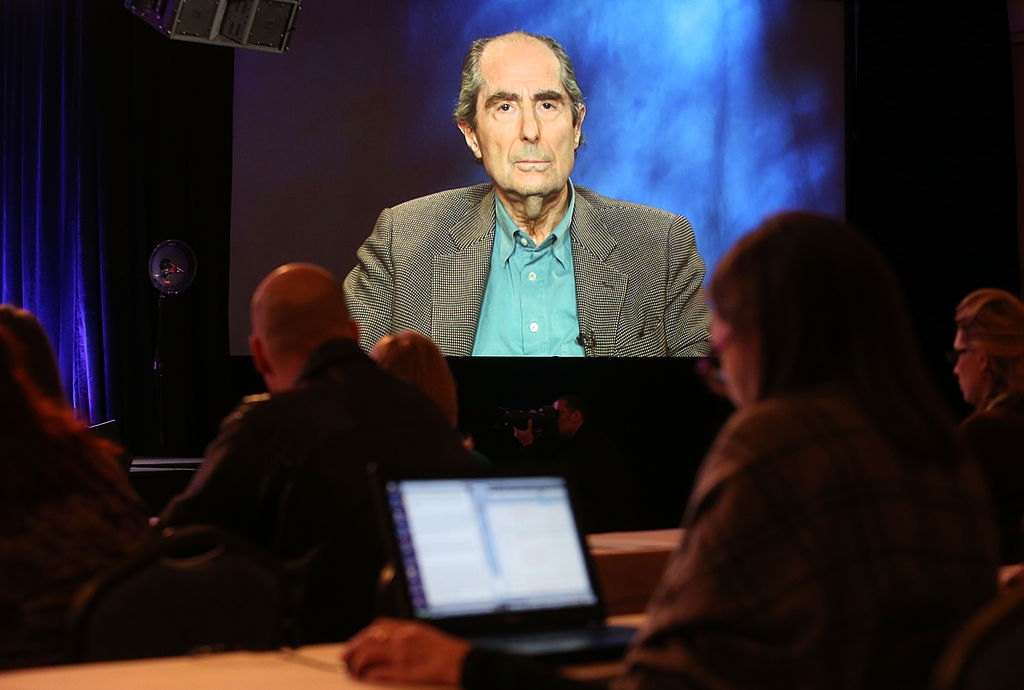Philip Roth is the Hugh Hefner of the American novel: he is the playboy of fiction; he has built a house of pleasure. But now, according to some, it is time to demolish that house.
A new biography of Roth is about to come out, and some of the details in it are the ammo that Roth’s critics have been waiting for: they have been pounced on as proof that he is a ‘misogynist’ and that there should be no place for him in the era of MeToo.
So what is Roth said to have done, according to Blake Bailey’s new authorised biography? Bailey describes Roth getting bored with his English wife, and going looking for Chinese prostitutes in Mayfair instead. He describes Roth getting older, and his girlfriends getting younger. And he describes how, in an oversubscribed seminar Roth taught in the 1970s, Roth recommended some of the female students be selected on their brains and their beauty.
Much of this is gross. But is it criminal? No allegations that Roth assaulted anyone have emerged. Indeed, he has a long list of former lovers and female friends who are vocally affectionate about him. Lisa Halliday even managed to turn her affair with Roth, when he was 69 and she was 23, into her novel Asymmetry (2018). Good for her.
Much of this is gross. But is it criminal?
And of course it’s immoral to leave your wife and go hunting for hookers. But this doesn’t mean Roth deserves to be cancelled.
So can we let all this go? No, apparently not. Several female American novelists, interviewed by the Sunday Times, have joined the growing chorus to condemn Roth. Sandra Newman says misogyny was ‘at the centre of his work. I think he was saying things he believed.’
Meg Elison concedes that Roth was a ‘fantastic writer’, but in ‘an age when we are tearing down statues’, his statue might be next – as if he had once ran a slavery-plantation. She says:
‘His misogyny infuses everything that he writes. It’s not the side dish, it’s the main dish. He is disgusted by his own attraction to women, which is why he writes so many of them as sex-crazed whores.’
Elison then adds:
‘He just seems to be rolling around in his id like (a) pig in shit.’
This is no way to describe the author of Portnoy’s Complaint (1969), The Counterlife (1986), Operation Shylock (1993), Sabbath’s Theater (1995), and The Human Stain (2000). These are masterpieces. They are as socially-attuned, as culturally-specific, as historically-precise, as any other books in the post-war period. They are carefully constructed canvases, that Elison just rips up, ignoring the characters, the situations, the speeches, the descriptions, the philosophising, the diatribing, the monologues and the dialogues, the whole topsy-turvy tailspin of lust and life and death. Her criticism is a vapid generalisation.
Elison claims Roth was ‘disgusted by his own attraction to women’, but on what evidence? She says Roth took revenge on womankind for disgusting him, by depicting them as ‘sex-crazed whores’. Really? To describe the beautiful dying mother, Drenka, in Sabbath’s Theater, as a ‘whore’, is absurd.
Roth wrote about men perplexed by desire, who sought psychoanalysts because of it. These men ruin their marriages because of it, they destroy their lives for it. His men are cracked mountains, they are dying of cancer, they are struggling with impotence, they are neurotic and self-defeating, they are dirty and homeless, they are not patriarchs of omnipotence. They are the outcasts of themselves.
A hater of women? An idoliser of men? I think not.






Comments